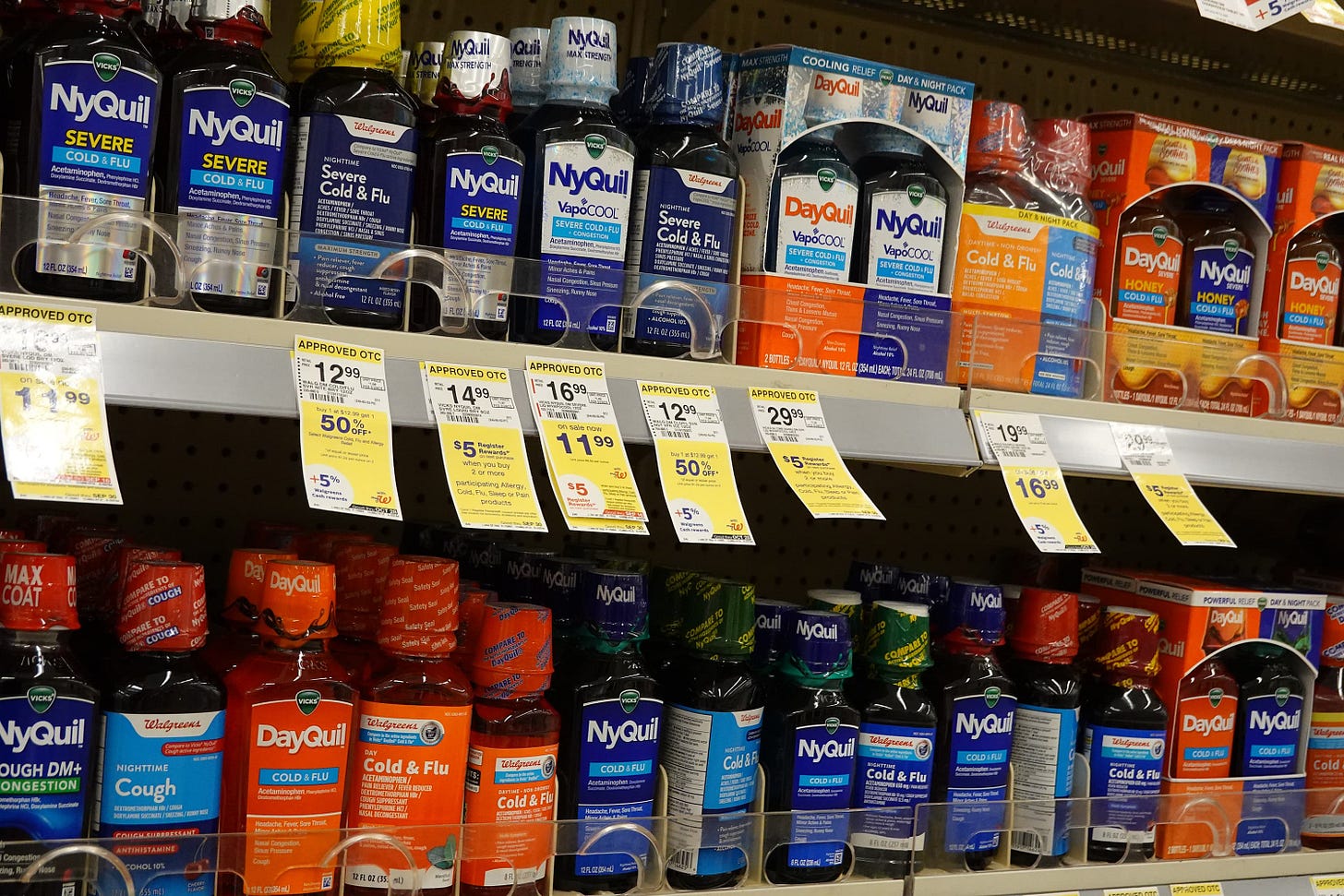Surprise! A Popular, Profitable Decongestant Doesn't Actually Work.
But this will be the least of our problems if the far right succeeds in their goal to deconstruct the administrative state.
NyQuil used to be my nighttime cold remedy of choice when I got my yearly, or twice-yearly, bouts of influenza (or whatever virus it was that always hit me hard with headaches, coughing, and sinus and bronchial congestion). If I wasn't careful, a flu would turn into bronchitis would turn into pneumonia … and that's no fun.
But when the FDA banished pseudoephedrine "behind the counter" in 2006, Vicks reformulated NyQuil and replaced pseudoephedrine with phenylephrine. Surely I wasn't the only user who noticed it made NyQuil ineffective against my nasal congestion? (And were drug dealers ever really buying enough NyQuil or Sudafed from retail pharmacies to extract the pseudoephedrine to make meth in meaningful quantities? It turns out there are more effective, large-scale ways to do that.)
Now the FDA has confirmed the accuracy of studies that show that phenylephrine is no more effective than a placebo—and news sites have been plastered with headlines about this for weeks. But it turns out that doctors have known this for at least 20 years. And patients like me have known it since at least 2006. Meanwhile, the drug companies have been generating huge profits through the sale of phenylephrine, reportedly as much as $1.8 billion in 2022. Where was the FDA?
“Congress needs to develop a way of better funding the F.D.A. review process…. Right now, Americans spend billions on drugs that contain ingredients that will not help them. That’s not just a waste of money — it could mean they are delaying appropriate treatment, which can lead to more severe illnesses. This is risky not only for health but also for trust. The American public deserves medicines that do what they are advertised to do. And Americans should demand that from their leaders.”
–Dr. Randy C. Hatton and Dr. Leslie Hendeles, “We’ve Known for 20 Years This Cold Medicine Doesn’t Work,” New York Times (Sept. 29, 2023).
In addition to regulators’ negligent inattention to at least 20 years of relevant scientific studies, this all makes me wonder why the lived experience of real people using real products is rarely captured. Or did most people really fall victim to the placebo effect?
If nothing else, this debacle demonstrates what can happen when you have a weak regulatory structure. When the far right talks about deconstructing the administrative state, this is an example of what they have in mind. Living under a government that fails to monitor drug companies well enough to keep them from profiting from the sale of snake oil to the public (which is clearly already happening) will be the least of our problems if they succeed.





